Discover the Breadth, Depth, and Heights of Filipino Cooking
Why is Filipino Food so Under-Appreciated around the world?

Too many Filipinos everywhere. Engineers, nurses, doctors, caregivers, accountants, seamen, teachers — but few are trained cooks. The adobo your friend or grandma cooks for you is probably not very good, and that’s the sad truth.
-
Identity Crisis. “Authentic” is not a word you can reasonably apply to Filipino food. It is the essence of Global Cuisine, borrowing and adapting freely from all cultures. Any chefs who claim their Filipino dishes are “authentic” simply don’t know what they’re talking about.
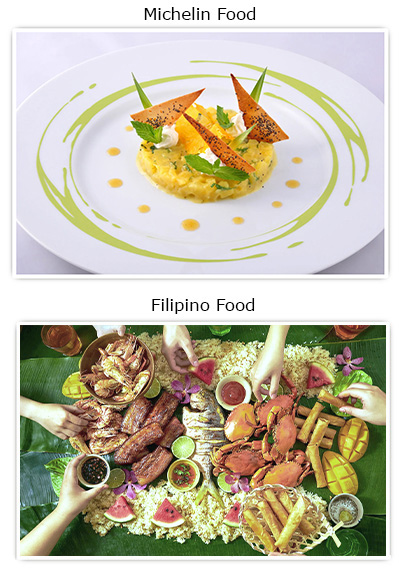
Filipino food is not designed to be pretty. It is designed to be eaten. If you eat regularly at Michelin-starred restaurants, as Plantation Bay’s owners do just to keep abreast of culinary trends, you will know that Michelin took a wrong turn decades ago, and rewarded “prettiness” and “creativity” at the expense of “taste”, “memorability”, and “repeatability”. Eat at almost any Michelin-starred restaurant anywhere in the world, and one week later you’ll have a hard time naming any of the amuse-bouches or principal courses, and you won’t especially care to eat any of them again.
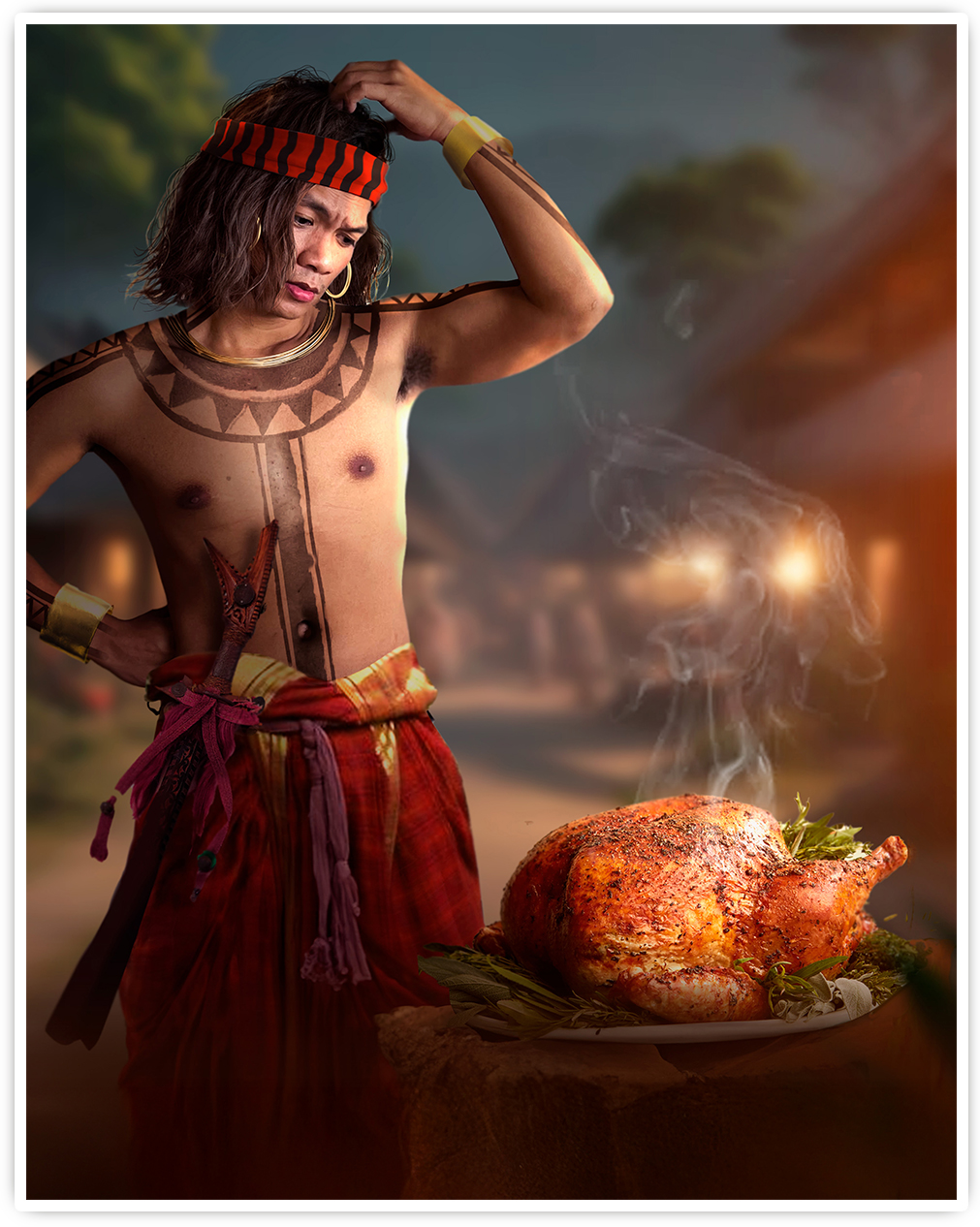
That said, before you can cook good Filipino food, you first have to know how to cook — the theory and practice of culinary arts. And you need to know global cuisines.
Plantation Bay is one of the very few single establishments in the world that really knows its global cuisine, and therefore can present the best of Filipino cuisine. To borrow advice given to brides on what to wear at their wedding, our Filipino food includes
Something old, something new; something borrowed, something blue.
The Real Adobo is “something old”. To be perfectly honest, most Filipinos don’t know what adobo is about, culinarily, and therefore can’t cook it right, but still offer it to friends around the world. That’s one of the reasons Filipino food is held in low regard. Our The Real Adobo is an old González-family recipe that captures the essence of what this dish is about — a harmony of salt, sweet, sour, bitter, umami, heat, fat, and acid. It’s recognizably and quintessentially adobo but probably worlds apart from any other adobo you’ve ever tasted.
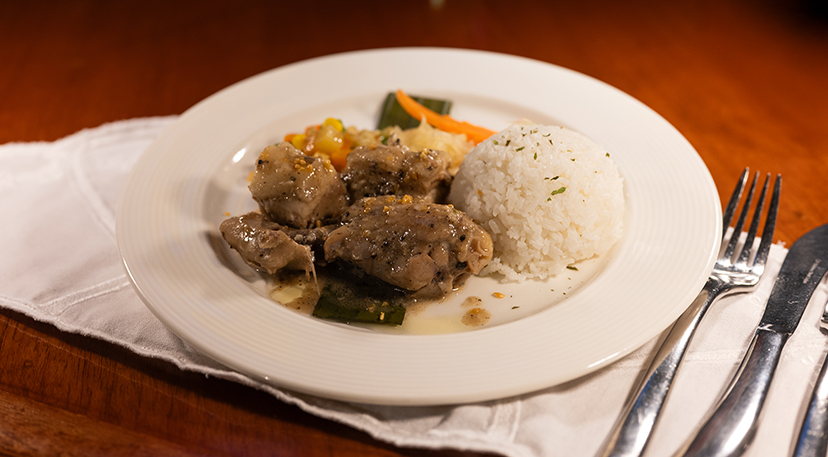
Our Nuclear Kagoshima Sirloin is “something new”. Yes, it’s made with top-quality beef flown in from Japan. But we maintain, with all respect, that the Japanese don’t know how to cook steak. In fact there is no char-broiling anywhere in Japanese cuisine, is there? We marinate our super-marbled sirloin for at least two days, then char-broil it over a real fire to “Very Well Done”. Guests routinely mock us for “not knowing how to grill steak”, but after their first bite, they mock no more.
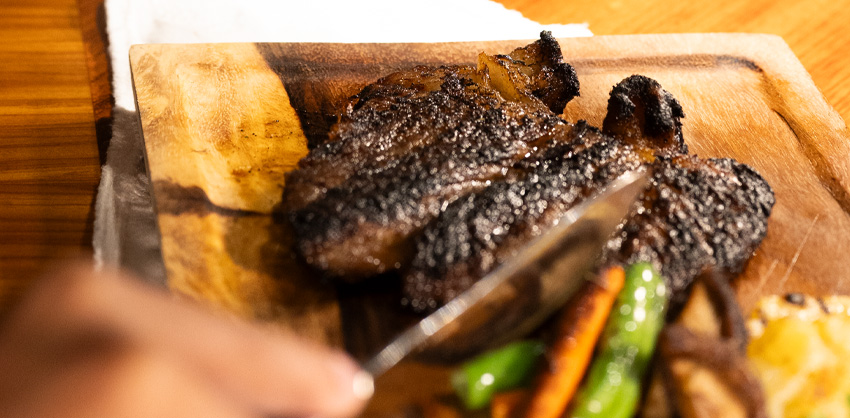
Caesar Salad is “borrowed” from Mexico. But our version is day-and-night different from anything you’ll find in the US or Europe. You haven’t tasted Caesar Salad until you’ve tasted ours.
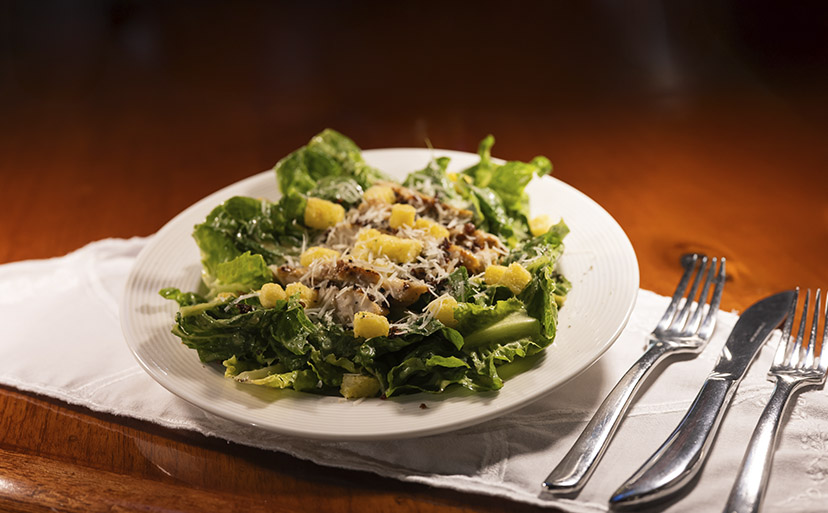
And, if you know anything about Philippine cuisine at all, you will have guessed that our “something blue” is Ube, the flavor that’s conquering the world. The secret to Ube is in the jam or paste made from this starchy tuber; it’s made in stages with careful tasting and adjusting throughout. If you stick to a rigid recipe you’ll get it wrong. The Jam (called “halaya” by Filipinos, a word probably derived from jalea, Spanish for “royal jelly” as in bees) provides the base for all our Ube desserts. Try them all, but our Ube Milk Shake and Ube Ice Cream are as close to Ube Heaven as you’ll get.
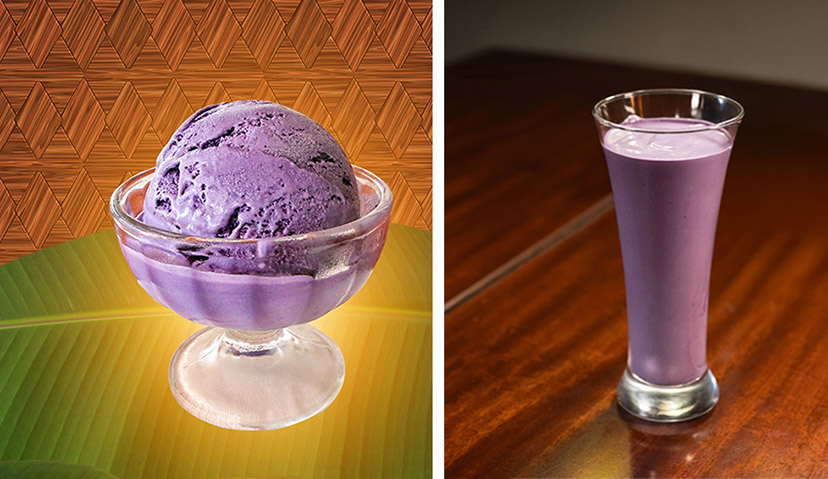
At every one of its four distinctive restaurants, Plantation Bay offers some Filipino dishes — classics, variants, or international dishes sufficiently altered that we now claim them as Filipino (just as many Americans claim meatballs, the Japanese claim ramen, the French claim pommes frites, and Italians claim anything tomato).
Some of these are:
Kare-Kare. Crispy Pata. Sinigang. Fresh Cebu Lumpia. Pancit Palabok. Paella Teresita. Breakfast longganiza. Crêpes des Îles. Cebuano Pochero. Manny’s Ceviche. Bicol Express. Filipinized Spaghetti Bolognese. Jackfruit Ice Cream, by itself or in Flaming Alaska Resurrection. Sizzling Polynesian Spareribs.
At some buffets, we even offer the dreaded dinuguan, but we draw the line at balut.
If you don’t know what these dish names mean, you owe it to yourself to come and find out!
I’d like to learn more about Plantation Bay’s Unique, Single-Minded Obsession with Food and How to Prepare It:
